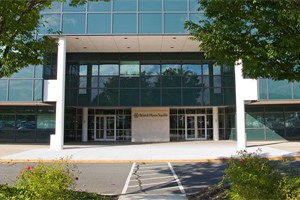 Bristol-Myers Squibb is celebrating two new cancer approvals in the EU, including a green light for AbbVie-partnered multiple myeloma therapy Empliciti.
Bristol-Myers Squibb is celebrating two new cancer approvals in the EU, including a green light for AbbVie-partnered multiple myeloma therapy Empliciti.
The company also gained approval for the combination of PD-1 inhibitor Opdivo (nivolumab) and CTLA4 inhibitor Yervoy (ipilimumab) for melanoma, several months after getting the nod in the US.
Empliciti (elotuzumab) has been approved by the European Medicines Agency (EMA) as a second-line therapy for myeloma in combination with Celgene’s Revlimid (lenalidomide) and dexamethasone. According to BMS it is the ‘first and only immuno-stimulatory antibody approved for multiple myeloma in the EU’.
The first-in-class SLAMF7 inhibitor – which was approved in the US last November – is thought to work by activating the body’s immune system to attack and kill multiple myeloma cells.
The approval is based on the ELOQUENT-2 trial, which showed that Empliciti plus Revlimid and dexamethasone achieved a 53% improvement in progression-free survival (PFS) after three years compared to Revlimid and dexamethasone alone, with a trend in favour of an overall survival benefit.
Empliciti has been tipped as a potential $4bn-plus product at peak by analysts at GlobaData, despite increasing competition in the market. The drug added $28m to BMS revenues in the first quarter of this year, entirely from the US.
It is one of four new multiple myeloma therapies that saw their first marketing approvals last year, along with Janssen Biotech’s Darzalex (daratumumab), Takeda’s Ninlaro (ixazomib) and Novartis’ Farydak (panobinostat).
Opdivo plus Yervoy
Meanwhile, the European Commission cleared Opdivo plus Yervoy for the treatment of advanced melanoma in adults based on the results of the CheckMate-067 trial, which showed a benefit for the combination on progression-free survival (PFS) versus Yervoy alone.
The pairing demonstrated a 58% reduction in the risk of disease progression versus Yervoy monotherapy in previously untreated patients with advanced melanoma. In patients treated with the two-drug regimen the PFS was 11.5 months, which compared to 6.9 months with Opdivo alone and 2.9 months for Yervoy monotherapy.
BMS notes this is the fifth EU approval for Opdivo and the first and only in Europe for an immuno-oncology combination, and points out that it can be used in all patents regardless of their BRAF status, potentially making it more useful than BRAF inhibitors such as Roche’s Zelboraf (vemurafenib) and Novartis’ Taflinar (dabrafenib).
Yervoy quickly established itself as one of the cornerstones of melanoma therapy after its launch in 2011, reaching a peak of $1.3bn in 2014. However, sales started to decline last year (to $1.1bn) after Opdivo and Merck & Co’s PD-1 inhibitor Keytruda (pembrolizumab) reached the market for melanoma.




